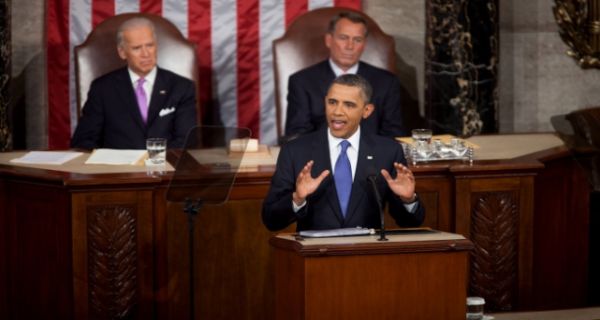
With the election resulting in an Obama landslide victory, national headlines have now turned towards the mess he’s faced with, namely the looming “fiscal cliff” that could push the nation back into recession and send millions of Americans back to the unemployment lines.
So what exactly is this fiscal cliff we’ve been hearing so much about? It refers to the effects of a series of laws and policies that will hit the nation on January 1, 2013. They include:
- Expiration of Bush era tax cuts that were originally set to expire in 2010 but which were extended in 2010 for an additional two years. As a result, federal income taxes will go up for most Americans.
- Expiration of the temporary two percent reduction in payroll taxes. As a result, all of our paychecks will be a little smaller in January.
- Expiration of the temporary fixes that prevented nearly 26 million Americans from paying the higher Alternative Minimum Tax. Starting January 1st, those affected will pay thousands more in federal income taxes.
In all, middle class families could see an average tax increase of nearly $2000 – $3500. These tax increases mean consumers will have less money to spend and less money to stimulate a struggling economy.
But it’s the combination of these tax increases along with automatic reductions in government spending that has many economists worried. In 2011, to avert a debt ceiling crisis, Congress passed the Budget Control Act which directs across the board budget cuts starting on January 1, 2013. This will result in cuts in everything from food inspections and military spending to air traffic safety and public education.
Experts predict that the double whammy – cuts in spending along with rising tax rates – in a sluggish economy could plunge the US right back into a recession. The Congressional Budget Office, for instance, predicts the unemployment rate could rise past 9% putting two million people in the unemployment line if nothing is done.
Many are hoping that both sides of the political aisle can come together to avert the crisis by either delaying the tax hikes until the economy improves or by reducing the size of the proposed spending cuts. But with Washington as bitterly divided as ever there is reason for pessimism.
So what can you do to prepare yourself for the impending fiscal cliff?
Don’t go overboard this holiday season.
With the holiday shopping season in full swing, it’s tempting to take advantage of all the holiday deals. But with a tight economy possible next year it may make sense to save money and cut back on your holiday spending. Your best bet may involve making a holiday budget and sticking to it.
Start building an emergency fund.
With a double-dip recession possible if Congress doesn’t address the nation’s financial situation, job security could become an issue next year. Now more than ever it makes sense for families to prepare for the unexpected job loss. If you haven’t taken creating an emergency fund seriously before, now may be the time.
Examine your finances and cut the waste.
If Congress doesn’t act soon your taxes will go up in 2013, meaning less money in your pocket. Now is the perfect time to find places to trim the fat in order to find extra money in your budget. Are you paying too much for car or home insurance? Can you refinance your home to save thousands in interests costs? Can you find a way to eat outside the home a fewer times a month or cut other unnecessary expenses? Trimming the fat now will help you find the money to offset higher taxes next year.
With the looming fiscal crisis we could all be facing a tough road next year. It’s best to be prepared for what may come.
BMWK – are you ready for the Fiscal Cliff? If yes, what are you doing to trim the fat? Now that Obama has been re-elected, do you think that Congress will be able to work together to come up with a solution that is in the best interest of the country? What can we do to send a message to our representatives that playing politics with our lives is not going to be acceptable over the next four years?

This is a test